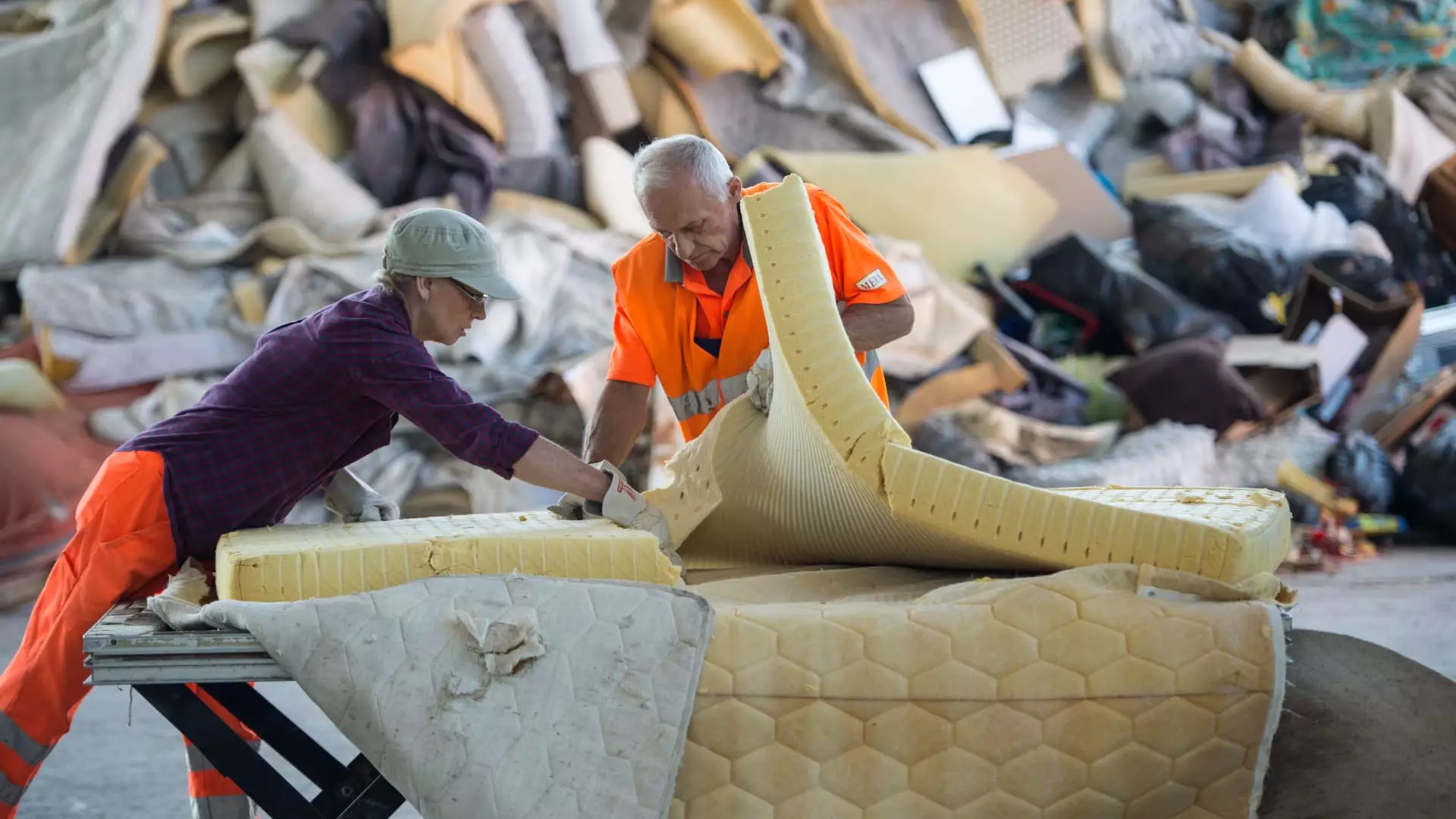The issue of waste generated by the mattress industry has increasingly gathered attention, particularly as the numbers continue to rise. Every year, Americans dispose of approximately 15 to 20 million mattresses, which equates to a staggering 50,000 discarded mattresses daily. The Mattress Recycling Council (MRC) has highlighted that over 75% of mattresses consist of recyclable materials such as steel, wood, foams, and fibers. This alarming statistic reveals both the potential for recycling and the challenge of improper disposal methods that contribute to overcrowded landfills.
As society becomes more aware of the environmental impact of consumer choices, the need for a sustainable approach to mattress disposal is becoming urgent. Several states are leading the charge by allowing consumers to contribute to recycling efforts through designated fees. California, Connecticut, Oregon, and Rhode Island currently impose a flat fee on mattress purchases, aiming to fund recycling initiatives and reduce landfill waste.
These state-mandated fees range from $16 to approximately $23 per mattress or box spring, a cost that consumers can expect to see reflected on their purchase receipts. For instance, residents in Oregon are subject to a $22.50 “stewardship assessment,” making it relatively straightforward for consumers to participate in environmentally responsible practices without over-complicating the process. This financial model ensures that a portion of the retail price goes directly to recycling programs managed by the MRC.
The intention behind these fees is multi-faceted. Not only does it provide the necessary funds to recycle discarded mattresses, but it also promotes a broader cultural shift towards advocating for the circular economy. Such initiatives aim to repurpose discarded products into new materials that can be reintegrated into the production cycle, effectively minimizing waste and maximizing resource utilization.
The rise of recycling programs underpins a broader movement known as Extended Producer Responsibility (EPR). This approach holds manufacturers accountable for the lifecycle of their products, thus transitioning some of the costs associated with waste management back to the producers. The MRC acts as a bridge between consumers and manufacturers by collecting the fees and ensuring they are used to finance recycling initiatives.
EPR encourages producers to design products with durability and recyclability in mind while funding the necessary infrastructure for recycling methods. As noted by Reid Lifset, a fellow in industrial ecology at Yale University, such systems create a new, sustainable revenue stream that facilitates waste management. The more states that adopt similar programs, the greater the momentum will build for environmentally conscious manufacturing processes.
As environmental concerns continue to dominate public discourse, states are increasingly recognizing the importance of implementing measures that alleviate the waste crisis. The current trend indicates that Massachusetts, Maryland, New York, and Virginia are potential candidates for similar mattress recycling programs, which could significantly boost the number of facilities and services available for mattress disposal across the country. As other states consider these initiatives, the MRC projects that operational scales will broaden.
Moreover, promoting consumer awareness plays a critical role in these initiatives. The convenience of reclaiming old mattresses through designated drop-off sites, coupled with accessible recycling services, reduces instances of illegal dumping while fostering a sense of responsibility among consumers. Currently, there exists a glaring lack of recycling options across the United States, with only 58 companies listed by the MRC for mattress recycling. The introduction of easily accessible collection sites could create more opportunities for responsible disposal and invigorate the recycling sector through job creation.
Ultimately, the shift towards mattress recycling capabilities underscores a collective responsibility to the environment. With states leading exemplary recycling initiatives through consumer fees, more people can engage in sustainable practices without the burdensome financial implications previously associated with waste disposal. As awareness and participation increase, so too will the potential for achieving a more circular consumer economy that values resource conservation and long-term environmental health.

